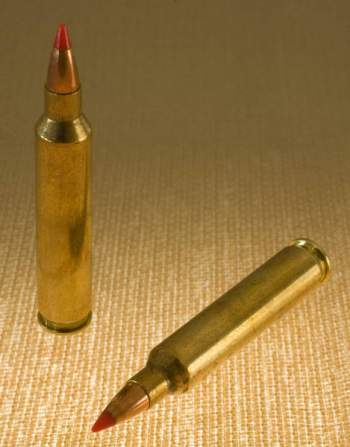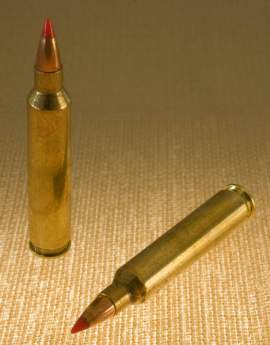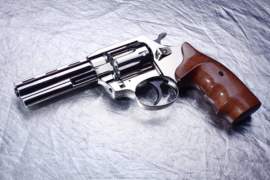
All You Need to Know About Gun Laws

Common Gun Laws: Gun laws in America will vary from state to state and differentiate from or are independent to the broader federal firearm laws. Each individual state will distribute specific gun laws based on their particular beliefs and their explicit interpretation of the 2nd Amendment. Currently, forty-four states possess a provision in their own state constitutions which is similar to the Second Amendment to the United States Constitution. States that do not possess a specific clause or attachment to the national Constitution will develop statutory civil right laws that contain a provision similar to the 2nd Amendment. All individuals who possess or purchase a firearm are subject to the gun laws of the state they are in and not the state in which the permit was issued. The variance that exists between each state’s gun laws will elucidate on certain specifics, such as: the waiting periods implemented before a gun can be acquired, the institution of background checks for gun ownership and the laws that surround the application and procedural process for licenses, permits to purchase, and permits needed to carry a concealed weapon. In addition to the variables present, each state will classify weapons based on three distinct categories: hand guns, long guns, and assault weapons. The Following list will breakdown the common gun laws by each state and reveal any intricacies or special rulings that may be present. Alabama: A permit is not required to purchase firearms in the state of Alabama. Additionally, the state does not require firearm registration nor a license of ownership. A permit; however, is required to carry a concealed handgun in the state. Alaska: The state of Alaska does not require a permit to purchase firearms; license of ownership and firearm registration is also not enforced in the state. A permit is; however, required to carry a concealed handgun in the state. Arizona: A permit to purchase firearms is not mandated in Arizona, though carrying a concealed handgun in the state does require a permit Arkansas: The state of Arkansas does not require a permit to purchase firearms, though a permit to carry a concealed handgun is necessary. California: A permit is not required to purchase firearms in the state but is required to possess an assault weapon. Carrying a concealed weapon will require a license. Colorado: The state of Colorado does not require a permit to purchase firearms, though a permit to carry a concealed handgun is necessary. Connecticut: The state of Connecticut requires an eligibility certificate or pistol permit is required before purchasing a handgun. Both documents have a valid life of 5 years; the documents will allow unlimited purchases. Carrying a handgun in the state will require an additional license, with a 60-day permit issued by a local law enforcement agent. Delaware: A permit is not required to purchase firearms in the state; however, a permit is required to carry a concealed weapon the state Florida: In Florida, a license is needed to carry a concealed firearm, but the state does not implement regulations for purchase or proof of ownership Georgia: The state of Georgia does not require a permit to purchase firearms, though a permit to carry a concealed handgun is necessary. Hawaii: A permit is needed to acquire a handgun; the permit is valid for 10 days and is needed for each purchase of a handgun. The permit to obtain a handgun is valid for 1 year and may be used an unlimited amount of times for the obtainment of long guns. A license is also needed to carry a handgun in the state. Idaho: The state of Idaho does not require a permit to purchase firearms, though a permit to carry a concealed handgun is necessary. Illinois: The state of Illinois will require every resident to possess a valid FOID card to purchase all forms of firearms and ammunition. The FOID card is valid for 5 years and no limit is placed on the number of firearms purchased. Illinois state law does not provide for concealed firearm permits. Indiana: A handgun license is required in the state for all forms of use. Indiana does not require a permit to purchase firearms Iowa: The state of Iowa requires an annually renewed permit to purchase revolvers or pistols, unless the buyer holds a valid permit to carry firearms. Kansas: The state of Kansas does not require a permit to purchase firearms, though a permit to carry a concealed handgun is necessary. Kentucky: The state of Kentucky does not require a permit to purchase firearms, though a permit to carry a concealed handgun is necessary. Louisiana: The state of Louisiana does not require a permit to purchase firearms, though a permit to carry a concealed handgun is necessary. Maine: Maine does not institute regulations for the right to purchase a firearm, but does require buyers to obtain a permit to carry a concealed weapon. Maryland: The state of Maryland requires an annually renewed permit to purchase revolvers or pistols, unless the buyer holds a valid permit to carry firearms. Massachusetts: The state of Massachusetts implements two classes of licenses, which allow the right carry. The class A license is needed for rifles and shotguns while a Class B license is needed for non-large capacity firearms and large capacity rifles and shotguns. The state requires a firearms identification card which permits a user to possess rifles, shotguns, ammunition and Chemical Mace and similar substances. Certain purchases of firearms will require a permit that is valid for 10 days. Michigan: The state required a license, which is valid for 10 days, for the purchase of a handgun. A permit is also required for concealed carry. Minnesota: The state requires citizens to obtain a transferee permit which is valid for 1 year and can be used to obtain an unlimited number of handguns and assault weapons. A permit is required to carry a concealed weapon in Minnesota. Mississippi: The state of Mississippi does not require a permit to purchase firearms, though a permit to carry a concealed handgun is necessary. Missouri: The state of Missouri mandates a permit to acquire a firearm; the permit is valid for 30 days and can be used for purchasing only one handgun. The state does not provide concealed firearm permits. Montana: The state of Montana does not require a permit to purchase firearms, though a permit to carry a concealed handgun is necessary. Nebraska: A transfer certificate is needed to purchase a handgun; the permit is valid for 3 years and can be used for an unlimited number of purchases. State law in Nebraska does not provide for concealed firearm permits. Nevada: The state of Nevada does not require a permit to purchase firearms, though a permit to carry a concealed handgun is necessary. New Hampshire: The state of New Hampshire does not require a permit to purchase firearms, though a permit to carry a concealed handgun is necessary. New Jersey: State law requires a permit to purchase a handgun; the permit is valid for 90 days and must be renewed for an additional 90 days. The state requires individuals to obtain a firearms purchaser identification card for the obtainment of long guns. A license issued by the state superior court is required to purchase or possess assault weapons. New Mexico: The state of New Mexico does not require a permit to purchase firearms, though a permit to carry a concealed handgun is necessary. New York: Every handgun purchased in the state of New York will require a license, issued by a county or city judicial or a law enforcement officer. The issuing agent will specify conditions for possession and carrying privileges. A license is valid throughout the state; however, New York City will attach additional rules to the obtainment of a license. Gun licenses are valid, but have a fixed duration of 3 years in New York City and 5 years in Nassau, Suffolk and Westchester counties. North Carolina: North Carolina requires a permit that is valid for 5 years, to purchase a handgun. A separate permit is required to carry a concealed handgun. The obtainment of machine guns must be approved through the issuance of a permit by the county sheriff. North Dakota: The state of North Dakota does not require a permit to purchase firearms, though a permit to carry a concealed handgun is necessary. Ohio: A permit is not required to purchase firearms in the state and Ohio law does not provide for concealed firearm permits. Those who wish to purchase, possess, carry or use any sawed-off or automatic weapons must apply to the sheriff of a county or a safety director or a police chief of a municipality for a license or temporary permit. Oklahoma: The state of Oklahoma does not require a permit to purchase firearms, though a permit to carry a concealed handgun is necessary. Oregon: The state of Oregon does not require a permit to purchase firearms, though a permit to carry a concealed handgun is necessary. Pennsylvania: The state of Pennsylvania does not require a permit to purchase firearms, though a permit to carry a concealed handgun is necessary. Rhode Island: No permit is required to purchase firearms; however, a permit is required to carry a concealed handgun. Individuals under the age of 18 must have a permit to participate in legal firearm activities. South Carolina: The state of South Carolina does not require a permit to purchase firearms, though a permit to carry a concealed handgun is necessary. Tennessee: The state of Tennessee does not require a permit to purchase firearms, though a permit to carry a concealed handgun is necessary. Texas: The state of Texas does not require a permit to purchase firearms, though a permit to carry a concealed handgun is necessary. Utah:The state of Utah does not require a permit to purchase firearms, though a permit to carry a concealed handgun is necessary. Vermont: Vermont state law does not require a permit to purchase or carry firearms Virginia: A permit is not needed to purchase a firearm; however, a permit (issued by a circuit court) is required to legally carry a concealed handgun Washington: The state of Washington does not require a permit to purchase firearms, though a permit to carry a concealed handgun is necessary. An alien lawfully residing in the U.S. must obtain a license to possess or carry a firearm in the state. West Virginia: The state of West Virginia does not require a permit to purchase firearms, though a permit to carry a concealed handgun is necessary. Wisconsin: The state of Wisconsin does not require a permit to purchase firearms, though a permit to carry a concealed handgun is necessary. Wyoming: The state of Wyoming does not require a permit to purchase firearms, though a permit to carry a concealed handgun is necessary. The Following is a summary of state laws governing waiting periods in regards to the obtainment of guns: The following states impose a waiting period for the purchase of all firearms: California: Institutes a waiting period of 10 days Hawaii: Institutes a waiting period of 14 days Illinois: A waiting period of 24 hours for long guns and 72 hours for handguns is required Rhode Island: Institutes a waiting period of 7 days. The following states impose waiting periods for handgun purchases and assault weapons Maryland: 7 days Minnesota: 7 days The following states impose waiting periods for Handguns only Washington D.C.: 48 hours Florida: 3 days Iowa: 3 days New Jersey: 7 days South Dakota: 48 hours Wisconsin: 48 hours The following states impose waiting periods for long guns only Connecticut: 2 weeks The Following States do not place a ban on any weapons: Alabama Alaska Arizona Arkansas Colorado Connecticut Delaware Florida Georgia Idaho Indiana Iowa Kansas Kentucky Louisiana Maine Massachusetts Michigan Minnesota Mississippi Missouri Montana Nebraska Nevada New Hampshire New Mexico North Carolina North Dakota Oklahoma Oregon Pennsylvania Rhode Island South Carolina South Dakota Tennessee Texas Utah Vermont Washington West Virginia Wisconsin Wyoming The Following states implement a ban on certain types of firearms—labeled in () California (All forms of Assault weapons are banned in the state) Washington D.C. (New acquisitions of handguns and semi-automatic firearms, which are capable of using a detachable ammunition magazine of more than 12 pounds capacity) Hawaii (Assault Pistols) Illinois (Certain districts outlaw the possession of firearms and other forms of guns) Maryland (Several low-caliber handguns and assault pistols are banned in the state) New Jersey (All assault weapons are banned in the state) New York (All assault weapons are banned in New York City and other jurisdictions) Ohio (Assault weapons are banned in some jurisdictions as well as handguns) Virginia (All guns classified as “Street Sweeper” firearms are banned in the state)

















